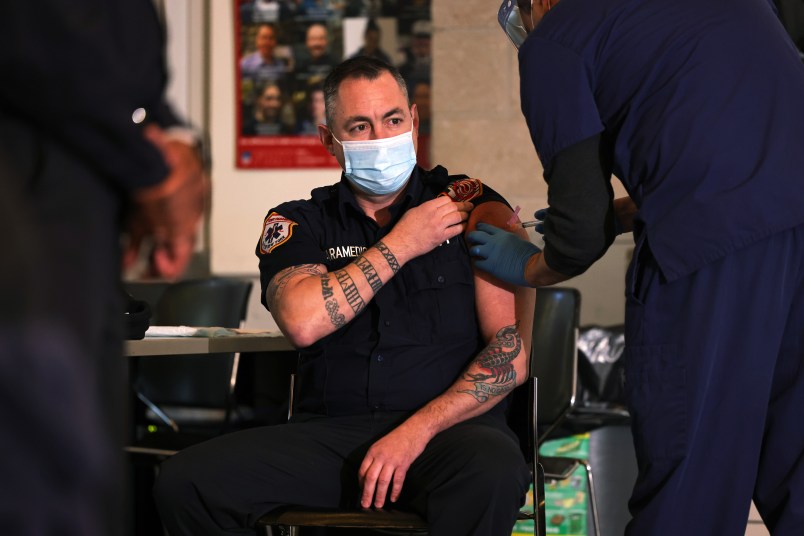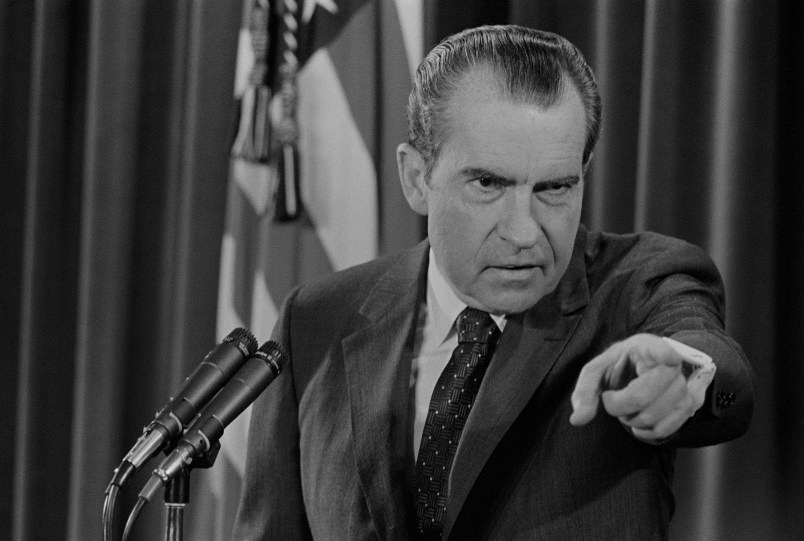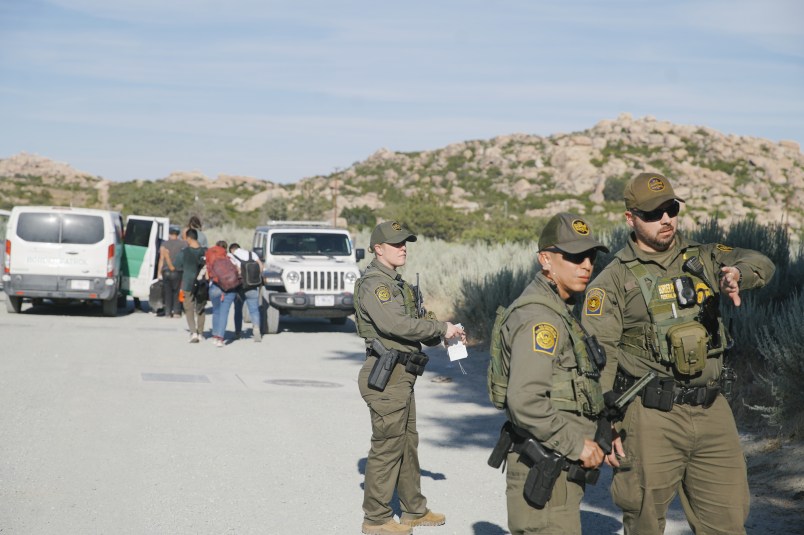This article is part of TPM Cafe, TPM’s home for opinion and news analysis.
Biden’s cabinet picks so far have been hailed as “a return to diplomacy and process.” but nominating trustworthy people won’t be enough to lead America’s government out of its trust crisis, and may even make it worse. Much as with the focus on which leaders get vaccinated, we must focus instead on the trustworthiness of processes and institutions, rather than the trustworthiness of individuals.
My research on trust shows that appointing trustworthy people to lead institutions that are distrusted will greatly hamper their effectiveness. In order to raise trust in the government, the Biden administration instead will have to identify and lean into parts of the government that are already highly trusted to shore up those parts of the government that are distrusted.
Currently, only 20 percent of Americans trust the federal government, according to Pew’s recent survey. While this isn’t the lowest it’s ever been — that honor belongs to 2011 — it is a far cry from the high of 77 percent in the 1960s. But this lack of trust is not monolithic. We trust some areas of the government more than others. In the Pew survey, these areas are posed as functions, but they represent different departments of the federal government.
The most trusted functions of government are keeping us safe from terrorism (Homeland Security, Department of Defense, our military); responding to natural disasters (FEMA); ensuring safe food and medicine (the FDA), and strengthening the economy (Treasury and Commerce). The least trusted areas are creating access to health care (Health and Human Services), protecting the environment (EPA), responding to threats to public health (HHS, COVID-19 response) and addressing poverty (HHS and Housing and Urban Development).
This is not simply an intellectual exercise or parlor game of ranking government agencies. Trust is part of the equation when Americans decide whether or not to vote, or whether to turn to the government for help when they lose a job. It also factors into American attitudes toward the government’s ongoing execution of its plan for distributing the COVID-19 vaccines.
From May to September, the percentage of U.S. adults who said they would definitely or probably get vaccinated if the vaccine were available today dropped from 72 percent to 51 percent, and JAMA published an October report showing that political endorsements from either Trump or Biden would negatively impact American’s support for the vaccine. It is not enough for political elites to tell us the vaccine is safe. In order to build confidence, the government must lean in on the most highly trusted parts of the development and distribution plan and target early vaccinations at the most trusting part of the population. This will build early trust and create momentum behind the vaccine as distribution is underway.
Americans trust the FDA, even if they may not trust the President or the Department of Health and Human Services. And they trust the military more than business leaders, the news media, or elected officials (80 percent vs. 45, 40, and 25 percent, respectively). Everyone wants credit, but in this case, it makes sense to minimize the visibility of the least trusted parts of this equation — HHS, business, elected officials — and maximize the visibility of the most trusted part of the equation. Perhaps the stress on vaccinating elected officials should not be our top priority.
Concerns about trust may also inform not only how we distribute the vaccine, but who gets the vaccine first. Operation Warp Speed’s plans to vaccinate older Americans first make sense not only because they are most highly at risk of COVID-19, but also because research shows they are the most trusting demographic. It may also be wise to make a public effort to vaccinate the military early in the process.
Why? Because when skeptical younger adults witness the vaccine deployed with higher trust populations and institutions they will become more likely to trust less trusted ones that may be involved later in the vaccine roll-out.
A trust-sensitive rollout of the COVID-19 vaccine shows how we can use trusted institutions to raise up mistrusted ones: use higher trust institutions to get the work done, while emphasizing the contributions of less trusted institutions when they succeed.
Embracing this general principle is the first step to take if we are to restore trust in a polarized age.
Kevin Vallier is Associate Professor of Philosophy at Bowling Green State University, where he directs the program in Philosophy, Politics, Economics, and Law. He is the author of Trust in a Polarized Age (OUP, 2020).










Wow, this article completely ignores why there is a deficit of trust against certain segments of the government right now…if it wasn’t for Trump and Republicans attacking all of the functions of government that are integral to making us safe from COVID and creating the vaccine it wouldn’t be a real issue. The depths of the sabotage of our government will only get better when people see it functioning again, and even then the seeds of distrust sown among the most right wing of Americans will cause unending pains for our system for years to come.
That’s the real legacy of the Trump administration and Republicans, their attempt to tear down the government and make a segment of Americans ungovernable.
There might be a difference between “trust” and willingness to get the vaccine. I think that willingness to get the vaccine will increase in the coming months. Just in the past 10 days millions of people have received the first dose without much problem.
Yes, the “bandwagon effect” will move many persons. There will always be those driven by mostly irrational-- that is, unsupported – reasons.